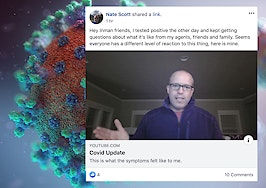The coronavirus has kept Americans from celebrating birthdays, attending graduations, witnessing births and enjoying the simple things, such as going to the grocery store to prepare for a dinner party with friends. However, it hasn’t stopped anyone from giving back.
“There is one constant in this pandemic and it’s that people who struggle with poverty are having difficulty getting their most basic needs met,” said Windermere Foundation Executive Director Christine Wood. “So, our mission at Windermere is to help our local food banks keep their shelves stocked and food on the table through our ‘Neighbors in Need’ fundraising campaign.”
Wood announced on Tuesday the Seattle-based Windermere Foundation, the non-profit arm of Windermere Real Estate, would replace its annual Community Service Day with a week of fundraising for 13 food bank distributors in California, Colorado, Hawaii, Idaho, Montana, Nevada, Oregon, Utah, and Washington. Between April 28 and May 5, Windermere offices will host digital fundraisers with a goal of $250,000. The Foundation will match every dollar raised for a final donation amount of $500,000.
“Food distributors use their large buying power and infrastructure to purchase food and distribute it to many other smaller food banks and food pantries across the state they operate within,” Windermere Vice President of Communications Shelley Rossi explained. “It enables us to have a greater impact on more food banks and more families in need of food. So, given that we are in ten states, literally hundreds of food banks and food pantries will benefit from the money we’re raising.”
 To give, donors must visit the Neighbors in Need homepage where they can choose a donation amount ranging from $5 to $2,500. They also have the option of listing their local Windermere office’s name so the donation goes to a food bank in their community.
To give, donors must visit the Neighbors in Need homepage where they can choose a donation amount ranging from $5 to $2,500. They also have the option of listing their local Windermere office’s name so the donation goes to a food bank in their community.
“We’re answering the call and rallying our troops in an effort to help food banks keep up with unprecedented needs,” Wood added, referencing conversations she had with various food bank organizers.
Since March, food banks across the country have experienced a boom in demand due to rising unemployment rates. In Seattle, the Ranier Valley Food Bank told NPR they can’t keep up with demand as weekly delivery requests have grown from 600 households to more than 750.
Another local organization Food Lifeline told Eater Seattle the supply of food from grocery stores, which makes up half of their donations, isn’t nearly enough to meet the needs of the individual food banks it delivers to. Plus, they’re counting on a skeleton crew of 15 to 20 volunteers — much less than the 19,000 they usually have on standby.
“The money can’t come soon enough,” Food Lifeline Media Officer Mark Coleman told Eater.
Wood said she’s confident in the Windermere community’s ability to meet or surpass the $500,000 mark, as the brokerage’s agents, franchise owners and staff have raised more than $41 million for low-income and homeless families since 1989.
“I hope we inspire others to do the same,” she concluded.








